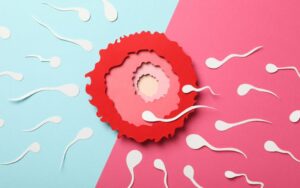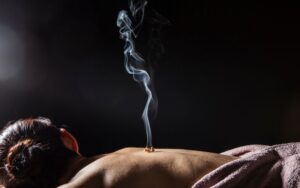A prevalent worry for many people is hair loss, which affects both men and women of all ages. While there are various causes of hair loss, one effective approach to addressing this issue is through the use of Chinese herbal remedies.
Traditional Chinese medicine has a long history of using herbs to promote healthy hair growth by targeting the root cause of the problem.
In this article, we will explore 10 Chinese Herbal Remedies for Hair Loss in 2024, discussing their benefits and how they can help improve scalp health, stimulate hair follicles, and promote hair regrowth.
Whether you are experiencing mild thinning or more severe cases of hair loss such as androgenetic alopecia, these herbal remedies may provide a natural solution to support healthy hair growth.
Let’s dive into the world of Chinese herbal remedies for hair loss:
Polygonum multiflorum (He Shou Wu)
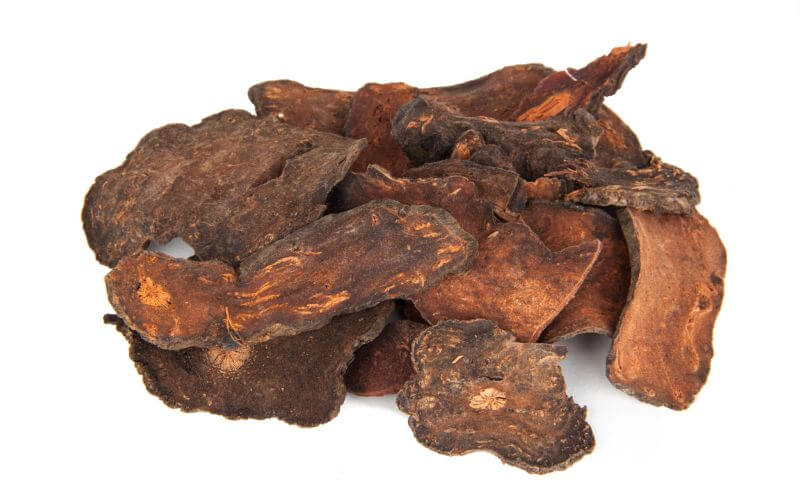
Polygonum Multiflorum, also known as He Shou Wu in traditional Chinese medicine, is a popular herb used to promote hair regrowth.
This herb has been shown to stimulate hair follicle cells and extend the growth phase of the hair cycle, leading to thicker and healthier hair.
Ginseng

Ginseng is another well-known Chinese herb that has been used for centuries to promote overall health and vitality, including hair growth.
Ginseng is known for its ability to improve blood circulation, which is crucial for delivering essential nutrients to the hair follicles and promoting healthy hair growth.
By enhancing blood flow to the scalp, ginseng helps stimulate hair follicles and strengthen hair roots, leading to a thicker and fuller head of hair.
Additionally, ginseng is a natural blood tonic that can help address underlying issues such as blood deficiency, which may contribute to hair loss.
Regular use of ginseng in herbal remedies can improve the overall health of the scalp, reduce inflammation, and nourish the hair from root to tip.
Whether taken orally or applied topically, ginseng can help support healthy hair growth and prevent further hair loss.
Rehmannia
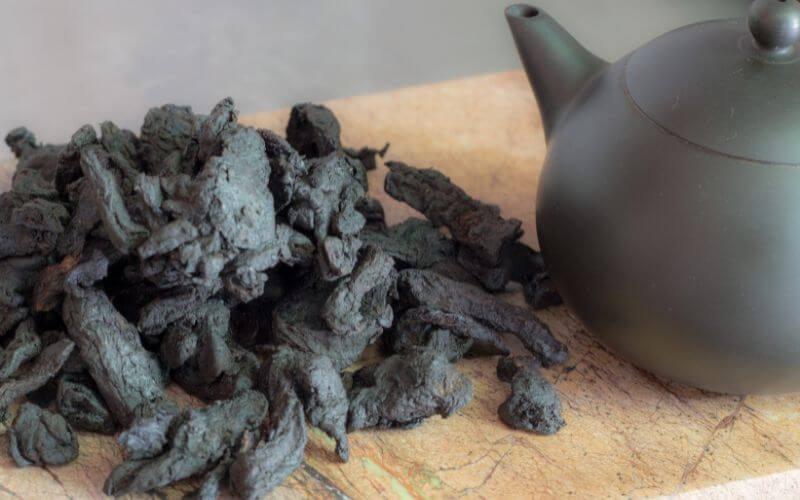
Rehmannia, also known as Shu Di Huang in traditional Chinese medicine, is a powerful herb that is often used to treat hair loss and promote hair growth.
This herb is known for its ability to nourish the blood and yin, which are essential for maintaining healthy hair follicles and promoting strong, thick hair growth.
By replenishing the blood and yin deficiencies in the body, Rehmannia helps improve circulation to the scalp, delivering vital nutrients to the hair follicles and promoting healthy hair growth from the root.
In addition to addressing the root cause of hair loss, Rehmannia also has anti-inflammatory properties that can help reduce scalp irritation and inflammation, which may contribute to hair thinning or shedding.
Rehmannia can be consumed orally in the form of herbal teas or supplements or applied topically as a hair tonic to nourish the scalp and promote hair regrowth.
With its ability to support overall scalp health and strengthen hair follicles, Rehmannia is a valuable Chinese herbal remedy for addressing hair loss.
Dong Quai
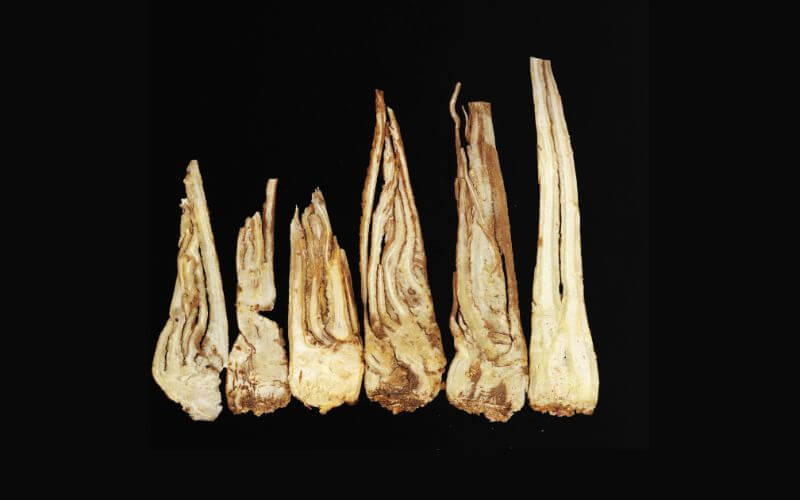
Dong Quai, also known as Angelica sinensis, is a popular Chinese herb that has been used for centuries to promote hair health and prevent hair loss.
This herb is known for its ability to balance hormones in the body, making it particularly beneficial for addressing hormonal imbalances that may contribute to hair loss, such as androgenetic alopecia.
By regulating hormone levels, Dong Quai can help reduce the production of dihydrotestosterone (DHT), a hormone that is often linked to hair follicle miniaturization and eventual hair loss.
In addition to its hormone-balancing properties, Dong Quai is also rich in antioxidants and vitamins that nourish the scalp and promote healthy hair growth.
Regular use of Dong Quai in herbal remedies can help strengthen hair follicles, reduce inflammation, and improve circulation to the scalp, leading to thicker and healthier hair.
Dong Quai can be consumed orally in the form of teas or supplements or applied topically as a hair tonic to nourish the scalp and promote hair regrowth.
Its natural hormone-balancing properties make it a valuable Chinese herbal remedy for addressing various types of hair loss.
Goji Berry
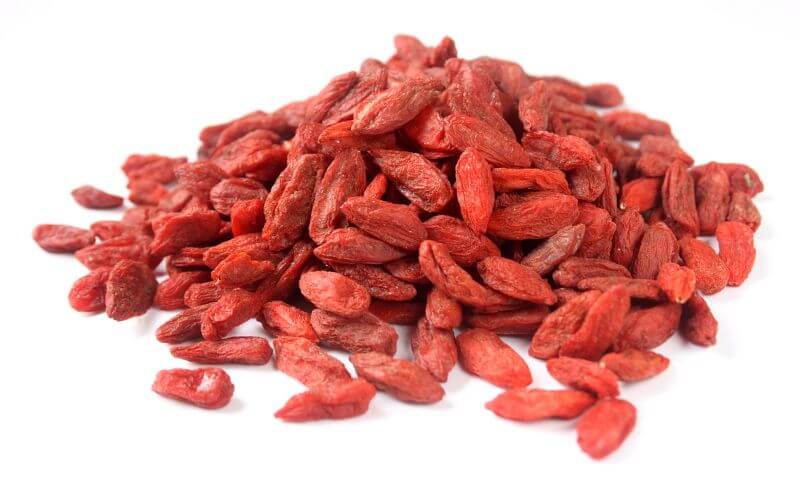
Goji Berries, also known as wolfberries, are a popular Chinese herb that has been used for centuries to promote overall health and well-being, including hair growth.
These berries are rich in antioxidants, vitamins, and minerals that nourish the scalp and hair follicles, helping to strengthen hair roots and promote healthy hair growth.
Goji Berries are also known for their anti-inflammatory properties, which can help reduce scalp irritation and inflammation that may contribute to hair loss.
By improving blood circulation to the scalp, Goji Berries delivers essential nutrients to the hair follicles, promoting thicker and fuller hair growth.
Regular consumption of Goji Berries in herbal remedies can help support overall scalp health, strengthen hair follicles, and prevent further hair loss.
Goji Berries can be consumed orally in the form of teas, supplements, or added to meals and smoothies. They can also be applied topically as a hair tonic to nourish the scalp and promote hair regrowth.
Astragalus
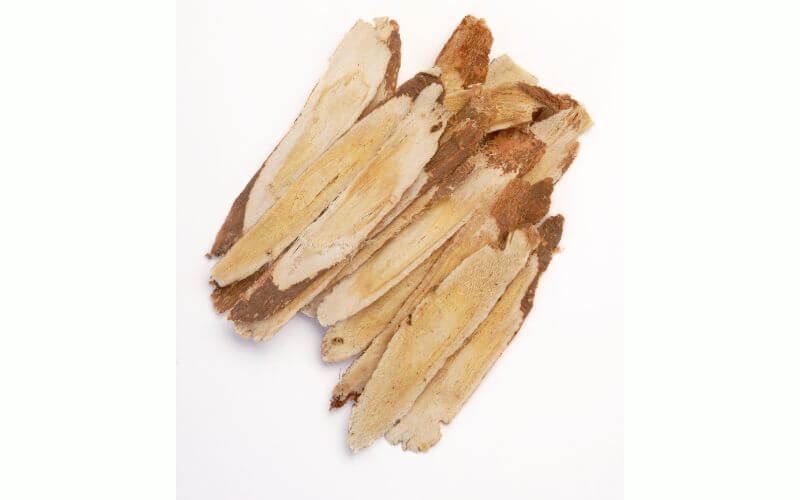
Astragalus, also known as Huang Qi in traditional Chinese medicine, is a powerful Chinese herb that is often used to address hair loss and promote hair growth.
This herb is known for its ability to strengthen the immune system, reduce inflammation, and improve blood circulation throughout the body, including the scalp.
By enhancing blood flow to the hair follicles, Astragalus helps deliver essential nutrients and oxygen to support healthy hair growth from the root.
Astragalus also contains antioxidant properties that can help protect hair follicle cells from damage caused by free radicals, promoting stronger and healthier hair.
Peony Root
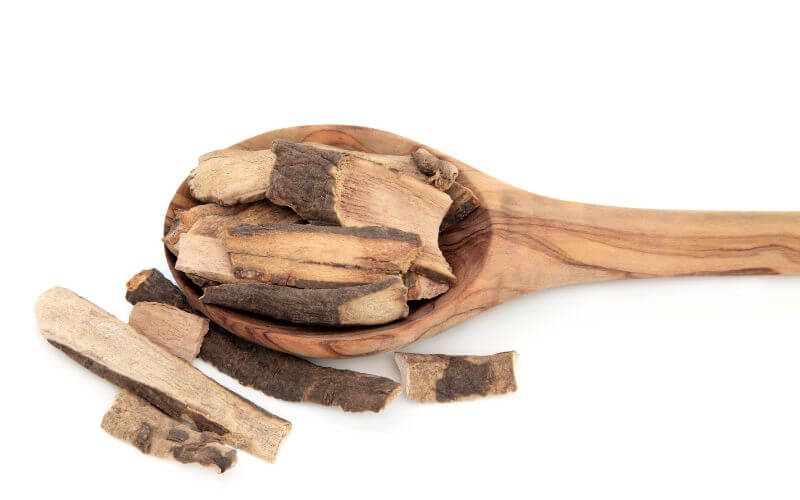
Peony, also called as Bai Shao in traditional Chinese medicine, is a versatile herb that is often used to treat various health conditions, including hair loss.
Peony is known for its ability to nourish the blood and promote circulation throughout the body, which can help address underlying issues such as blood deficiency that may contribute to hair loss.
By improving blood flow to the scalp, Peony helps deliver essential nutrients and oxygen to the hair follicles, promoting healthy hair growth from the root.
In addition to its blood-nourishing properties, Peony also has anti-inflammatory effects that can help reduce scalp irritation and inflammation, which may be contributing factors to hair loss.
This herb is often used in combination with other Chinese herbs to create powerful herbal remedies for addressing hair loss and promoting overall hair health.
Peony can be consumed orally in the form of teas or supplements or applied topically as a hair tonic to nourish the scalp and promote hair regrowth.
Regular use of Peony in herbal remedies can help strengthen hair follicles, reduce inflammation, and improve circulation to the scalp, leading to thicker and healthier hair.
Schisandra
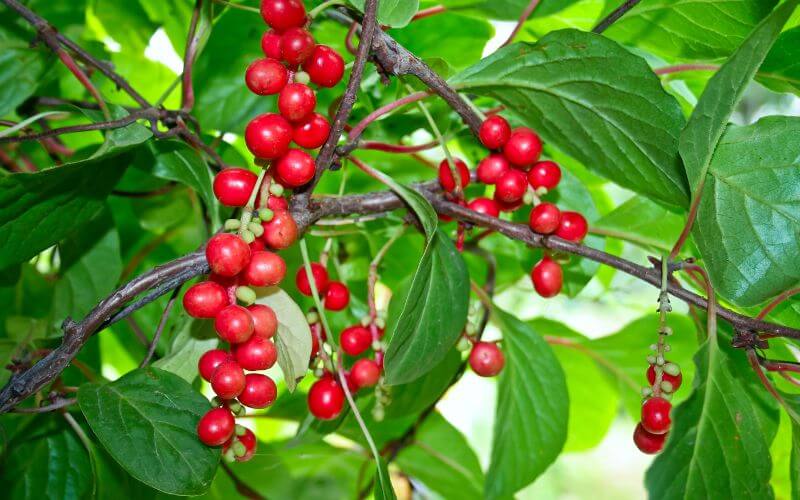
Schisandra, also known as Wu Wei Zi in traditional Chinese medicine, is a potent Chinese herb that is gaining popularity for its ability to promote hair growth and combat hair loss.
This herb is known for its adaptogenic properties, which help the body adapt to stress and maintain balance. S
tress can be a major contributing factor to hair loss, so incorporating Schisandra into herbal remedies can help support overall hair health.
Schisandra is also rich in antioxidants, vitamins, and minerals that nourish the scalp and hair follicles, promoting stronger and healthier hair growth.
It helps improve blood circulation to the scalp, delivering essential nutrients and oxygen to the hair follicles.
Ligustrum
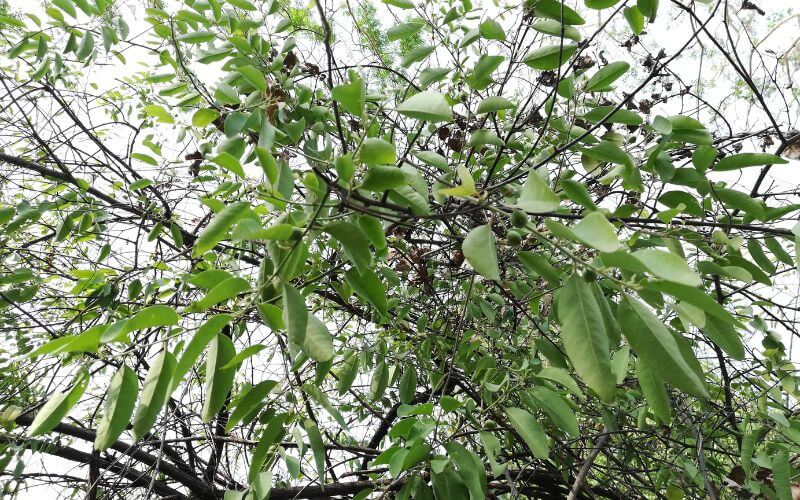
Ligustrum, also known as Nu Zhen Zi in traditional Chinese medicine, is a popular Chinese herb that is often used to promote hair growth and prevent hair loss.
This herb is known for its ability to nourish the liver and kidneys, which are believed to play a role in overall hair health according to traditional Chinese medicine principles.
By supporting the liver and kidneys, Ligustrum helps promote blood circulation throughout the body, including the scalp, delivering essential nutrients and oxygen to the hair follicles.
In addition to its blood-nourishing properties, Ligustrum also contains antioxidant compounds that help protect hair follicle cells from damage caused by free radicals, promoting stronger and healthier hair growth.
Ligustrum can be consumed orally as a supplement or brewed into a tea to promote overall hair health and prevent hair loss.
This herb can also be applied topically as a hair tonic to nourish the scalp and strengthen the hair follicles, leading to thicker and healthier hair growth.
Ligustrum is often used in combination with other Chinese herbs to create powerful herbal remedies for addressing hair loss and promoting scalp health.
Regular use of Ligustrum in herbal remedies can help improve blood circulation, nourish the scalp, and protect hair follicles from damage, resulting in improved hair growth and overall hair health.
Szechuan Lovage
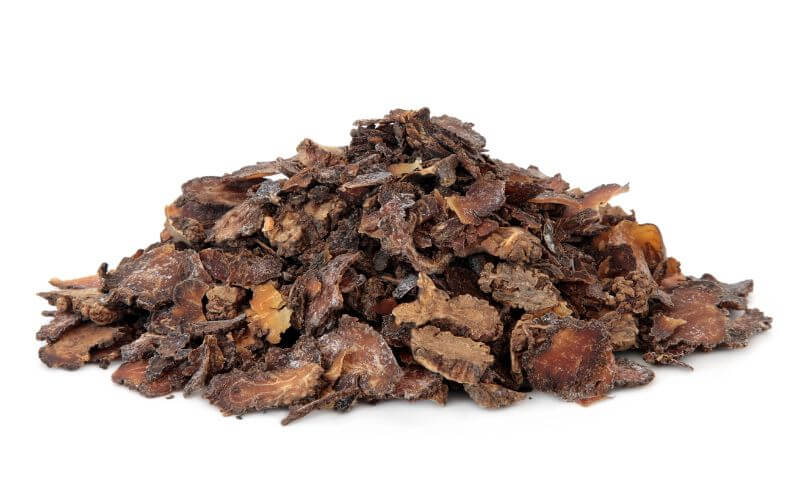
Szechuan Lovage, also known as Chuan Xiong in traditional Chinese medicine, is a powerful Chinese herb that is commonly used to promote blood circulation and alleviate symptoms of blood stagnation throughout the body.
In the context of hair loss, Szechuan Lovage can be particularly beneficial for individuals experiencing poor circulation to the scalp, which may contribute to inadequate nourishment of the hair follicles and subsequent hair loss.
By promoting blood flow to the scalp, Szechuan Lovage helps deliver essential nutrients and oxygen to the hair follicles, supporting healthy hair growth from the root.
This herb also has anti-inflammatory properties that can help reduce scalp irritation and inflammation, which are often associated with certain types of hair loss such as androgenetic also pecia.
Szechuan Lovage can be consumed orally as a supplement or brewed into a tea to promote blood circulation and support healthy hair growth.
It can also be applied topically as an oil or hair tonic to nourish the scalp and encourage stronger, thicker hair.
Regular use of Szechuan Lovage in herbal remedies can help improve circulation to the scalp, reduce inflammation, and support overall hair health, making it an excellent addition to Chinese herbal remedies for hair loss.
Overall, Chinese herbal remedies offer a natural and holistic approach to treating hair loss by addressing underlying imbalances in the body that may contribute to thinning or shedding of hair. Incorporating herbs such as Peony, Schisandra, Ligustrum, and Szechuan Lovage.
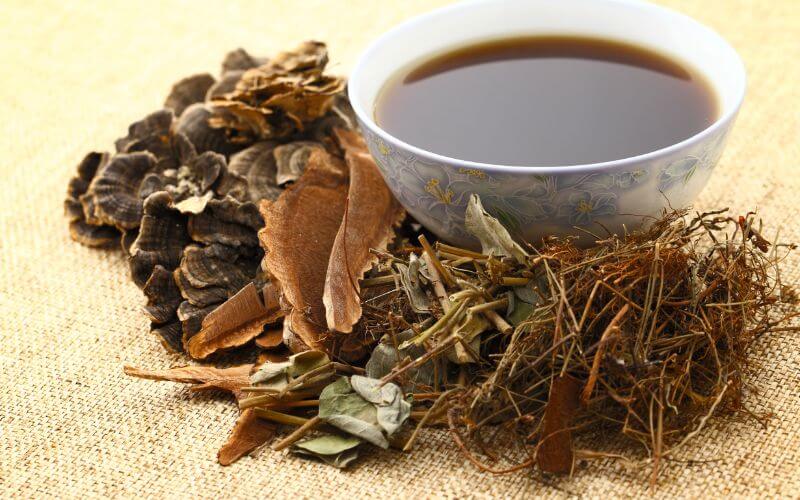
Chinese Herbal Remedies for Hair Loss can be a beneficial and natural approach to improving scalp health and promoting hair growth, it is essential to consult with a qualified healthcare practitioner before starting any herbal treatment regimen.
They can help determine the underlying cause of your hair loss and recommend the most appropriate herbal remedies for your specific situation.
In some cases, more severe forms of hair loss may require additional treatments such as hair transplants or medications to address the issue effectively.
However, incorporating Chinese Herbal Remedies for Hair Loss into your routine can be a gentle and supportive way to promote healthy hair growth and maintain a full head of hair.
By addressing the root cause of hair loss and nourishing the scalp with these traditional herbs, you can support the health of your hair follicles, strengthen your hair strands, and promote overall hair growth.
Remember to be patient and consistent with your herbal remedies, as it may take some time to see noticeable results.
Enhance Your Health with Lau Of Natural Healing TCM Wellness Classes
In addition to incorporating Chinese herbal remedies for hair loss into your routine, another beneficial way to support overall health and well-being is by participating in Traditional Chinese Medicine (TCM) wellness classes offered by Lau Of Natural Healing TCM Academy.
These classes provide valuable insights into the principles of TCM, including how to balance the body’s energy, or qi, through practices such as acupuncture, herbal medicine, tai chi, and qigong.
By learning about these ancient healing techniques, you can gain a deeper understanding of how to maintain optimal health and prevent imbalances that may contribute to conditions like hair loss.
Contact us today to learn more about our TCM wellness classes and how we can complement your Chinese herbal remedies for hair loss regimen.
Conclusion
In conclusion, Chinese Herbal Remedies for Hair Loss offer a natural and holistic approach to supporting healthy scalp and hair growth.
By incorporating these herbs into your daily routine, you can nourish your hair from the inside out and promote strong, vibrant locks.
Consult with a qualified healthcare practitioner to determine the best herbal remedies for your specific type of hair loss and enjoy the benefits of traditional Chinese medicine on your journey to healthier hair.
FAQs Related To Chinese Herbal Remedies for Hair Loss
When used appropriately and under the guidance of a qualified healthcare practitioner, Chinese herbal remedies can be safe and effective for treating hair loss. It is important to consult with a professional before starting any herbal treatment regimen to ensure that the herbs are appropriate for your specific situation and do not interact negatively with any medications you may be taking.
The timeline for seeing results from using Chinese herbal remedies can vary depending on the individual and the extent of hair loss. Some people may start to see improvements in hair growth within a few weeks of consistent use, while others may take several months to notice a difference. It is important to be patient and consistent with your herbal treatments to give them time to work effectively.
Yes, Chinese herbal remedies can be used in combination with other hair loss treatments such as minoxidil or finasteride. However, it is essential to consult with a healthcare practitioner before combining treatments to ensure that they are safe and effective together. Some herbs may interact negatively with certain medications, so it is crucial to get professional guidance before starting any combined treatment regimen.




